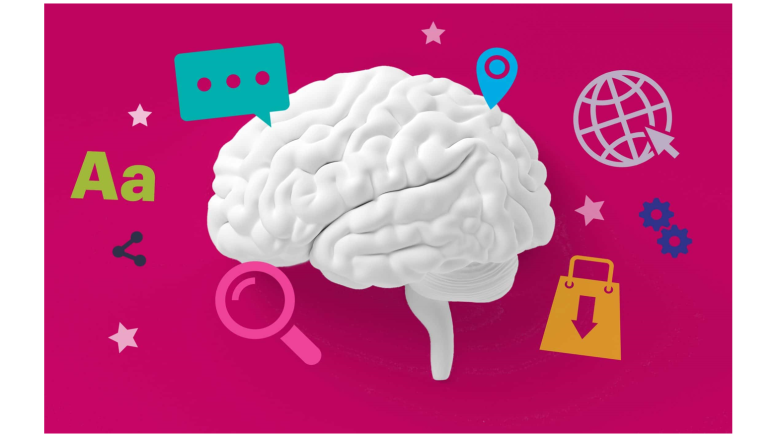In today’s competitive landscape, understanding the brain’s role in brand perception is pivotal for crafting compelling brand strategies. Neuroscience offers profound insights into how consumers process, engage with, and retain brand information. For C-suite leaders, leveraging these insights can be a game-changer in driving brand success.
I am sharing here my top 3 observations of how neuroscience is crucial in shaping effective brand strategies and hence importance for CMOs to be involved in this part as well.
- Emotional Resonance and Brand Loyalty
An Insight:
Emotional resonance is central to brand strategy, as emotions significantly influence consumer behaviour. Neuroscientific research highlights how emotional responses to brands are processed in the limbic system, particularly the amygdala, which plays a key role in emotional learning and memory. Brands that evoke strong positive emotions are more likely to foster deep connections and loyalty.
Nuanced Application:
To harness emotional resonance, brands should focus on creating authentic and compelling narratives that align with the values and aspirations of their target audience. This can be achieved through storytelling that appeals to the emotional centres of the brain, reinforcing positive associations and enhancing brand recall. For instance, brands like Nike and Apple successfully leverage emotional branding by aligning their messages with values such as empowerment and innovation.
Strategic Approach:
Marketers may want to prioritise emotional engagement in their brand strategies by investing in creative campaigns and experiences that evoke genuine emotional responses. Utilising tools such as emotional analytics and consumer sentiment analysis can provide insights into how well a brand’s messaging resonates with its audience, enabling more targeted and effective branding efforts.
- Neuromarketing and Consumer Decision-Making
Sharing observation:
Neuromarketing explores how brain activity influences consumer decision-making. Functional Magnetic Resonance Imaging (fMRI) and Electroencephalography (EEG) have revealed that decision-making processes involve complex interactions between various brain regions, including the prefrontal cortex, which is associated with executive functions, and the ventral striatum, which is linked to reward processing.
Nuanced Application:
Understanding these neural mechanisms allows brands to design strategies that align with how consumers make choices. For example, neuromarketing research has shown that appealing to the reward centres of the brain can enhance the effectiveness of promotional offers and product features. Brands can use this knowledge to craft compelling value propositions and optimise product placements that resonate with the brain’s reward system.
Strategic Approach:
To leverage neuromarketing insights, marketing executives may want to incorporate neuropsychological principles into product development and marketing strategies. Conducting neuromarketing studies can provide valuable data on consumer preferences and reactions, enabling brands to refine their approaches based on scientific evidence rather than intuition alone. This approach can lead to more effective marketing campaigns and product innovations that align with consumer decision-making processes.
- Cognitive Load and Brand Communication
Sharing observation:
Cognitive load theory, derived from cognitive neuroscience, emphasises the importance of managing the amount of information a consumer processes at any given time. The brain’s cognitive resources are limited, and excessive cognitive load can impair decision-making and brand recall. Effective brand communication must therefore be designed to minimise cognitive overload.
Nuanced Application:
Brands that streamline their messaging and avoid unnecessary complexity can enhance consumer comprehension and retention. Simple, clear, and visually engaging communication reduces cognitive load, making it easier for consumers to process and remember brand information. For instance, successful brands often use minimalist design and straightforward messaging to ensure their communications are easily understood and memorable.
Strategic Approach:
C-suite leaders should ensure that brand messaging and visual identity are optimised for clarity and impact. This involves simplifying content, using intuitive design principles, and avoiding overly complex or ambiguous messages. Implementing UX research and cognitive testing can provide insights into how consumers interact with brand communications, allowing for adjustments that improve effectiveness and reduce cognitive strain.
As a concluding piece, I’d say incorporating insights from neuroscience into brand strategy is not merely an academic exercise but a practical approach to enhancing brand effectiveness and consumer engagement. By understanding emotional resonance, leveraging neuromarketing insights, and managing cognitive load, C-suite leaders can develop more compelling and impactful brand strategies.
The views and opinions published here belong to the author and do not necessarily reflect the views and opinions of the publisher.



Be the first to comment on "The Intersection of Neuroscience and Brand Strategy"